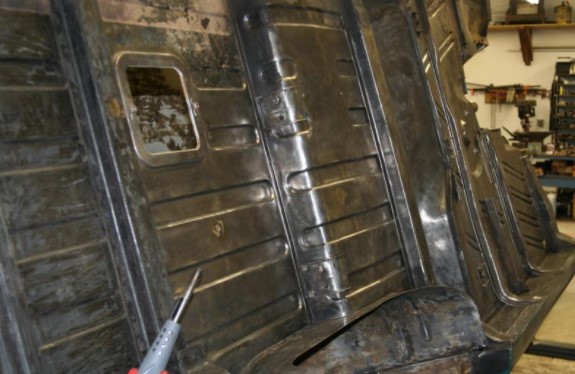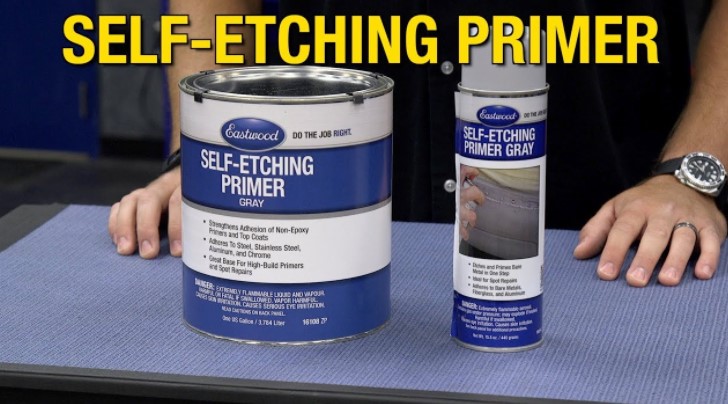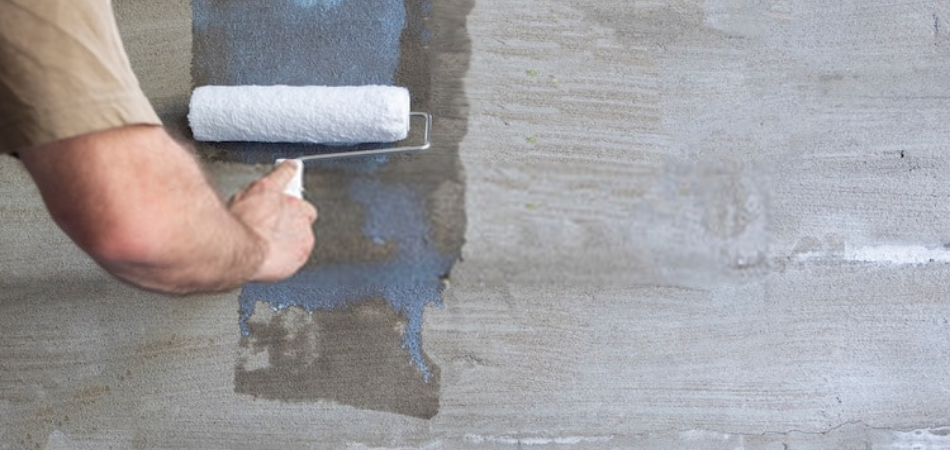Etch primer, also known as metal primer, is a type of paint that promotes paint adhesion to metal surfaces. It is made of solvents and resins that etch into metal and dry to a smooth, rust-resistant finish. It is a vital first step in the metal surface, as it prepares the surface for topcoats and prevents premature peeling of paint. But does etch primer prevent rust?
Yes, it certainly will help. Nothing prevents things from rusting better than zinc phosphate or epoxy primer. The primary benefit of etch primer is its ability to promote adhesion between the base coat layer and a metal substrate and provide corrosion resistance.
To prevent rusting, always use a primer designed to stop corrosion. Both etch primers, and self-etching primers fill in the pores of the metal when applied, creating a barrier between the water and the bare steel. Etch primers are aluminum-colored and don’t require any sanding between coats. The primer itself does the Sanding. It goes on nice and smooth and dries almost instantly.
This page covers all that you need to know about etch primer. If you are yet skeptical of its potency in preventing rust on metals, you are just in the right place for the right information.
Contents
How Does Etch Primer Keep Rust From Spreading?
Etch primers are acid-based products that are designed to bond with metals they are applied on. The bonding process is possible because of the presence of Polyvinyl Butyral resins in it. It also comprises Zinc Phosphate which acts as a seal after the etch primer has been applied.

It is important to note once again that the etch primer does not stop rust but prevents it from further spreading.
When it is applied, the acid etches into the metal, chemically acting with it to create a bond between primer and metal. When this happens, the Zinc Phosphate then acts as a seal to cut off previously exposed metal from air and moisture. (Air and moisture, being the primary trigger for rust). These application processes have detailed procedures and guidelines to follow before successful applications.
What Happens Before Application?
For a smooth application of Etch Primers to prevent rust, there are things to note and carry out before its application. The rust has to be dealt with before anything can be done. There are methods to do so. They are;
1. Media Blasting
This method of rust removal combines compressed air and abrasives with the help of specially designed equipment. It forces abrasives through the equipment onto surfaces that require rust purging. The abrasives collide with the rust and make to eliminate it, thereby leaving behind a smoother surface. There are means of blasting effectively for removing rust.
- Siphon Fed Blasting: This means, requires a tube to move liquid or air from one container to another within the equipment for blasting to occur. It is aided in this process by the implementation of gravity and atmospheric pressure.
- Pressure Blasting: Pressure blasting on the other hand, as the name implies, capitalizes on the sheer force of pressurized air by the pressure vessel. The vessel is fed air and contained. When the valve is opened, abrasive material together with air jets out at a high velocity. The particles generate high kinetic energy in the process and impact the targeted surface effectively. This process makes the pressure blasting means, very effective and fast as opposed to other means.
2. Sanding
Sanding is another way to clear a surface of rust. It can be defined as the process of smoothing or polishing a surface with sand or sandpaper. Many tools, such as sanding block, belt sander, and the angle grinder are tools used for sanding. However, it isn’t a primary go-to procedure for eliminating rust. Seeing as it is unfit to use with lead paint. When Lead paint is sanded, it releases toxic lead dust into the air which is detrimental to the health and the environment.
When all these have been evaluated and carried out, it is now safe to carry out the application of the primer.
How To Apply Etch Primers
For a successful application of Etch Primers, it is necessary to pay attention to detail.

- The surface of the metal has to be scrutinized for dents. If dents are noticed, the process of filling and sanding shouldn’t be neglected as a smoother surface calls for a finer application.
- A single coat of Etch primer is needed to be applied to the surface. Any more than the recommended layer of coat could result in a poor finish. The application should be made with a spray to ensure a thin layer
- After application, enough time should be given for it to dry.
- A secondary paint would then be applied over it and then the final coat of paint for the outer surface.
Pros of Etch Primers
The use of Etch primers over other types comes with its advantage.
- It provides excellent adhesion. The inclusion of the Polyvinyl Butyral resin as a part of its components makes it great at gluing to metal surfaces after application.
- It may not need exaggerated preparation before application.
- Rapid cure: less than an hour after application leaves the surface ready for the application of paint.
- Its zinc phosphate pigmentation offers corrosive protection.
Cons of Etch Primers
Etching Primers also have their disadvantages. Its structure and makeup place it on a low pedestal for some workers. Some of the reasons are:
- It is unsuitable for previously coated metal. The acid-based nature of etching primers makes for an unfriendly union with coated surfaces.
- It is unsuitable for heavy-duty, high film build intermediates and topcoats.
- Its application calls for thin films. This means that it is unable to provide high levels of corrosive protection.
- For a successful application, a spray must be used to apply thin layers. A brush or roller can only be used for small surface areas.
Conclusion
Etch Primers prevent rust only when they have been applied before the process of rust kicks in. That is, on a bare/clean metal. Its chemical properties help to seal off the metal if it is applied thinly and evenly. If the metal is exposed and rust has set it, the etch primer can only then prevent it from spreading.


